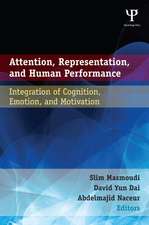Abstraction and Aging: A Social Psychological Analysis: Recent Research in Psychology
Autor Jason S. Leeen Limba Engleză Paperback – 19 dec 1990
Din seria Recent Research in Psychology
- 15%
 Preț: 632.37 lei
Preț: 632.37 lei -
 Preț: 379.86 lei
Preț: 379.86 lei - 15%
 Preț: 637.13 lei
Preț: 637.13 lei -
 Preț: 377.73 lei
Preț: 377.73 lei - 15%
 Preț: 631.40 lei
Preț: 631.40 lei -
 Preț: 382.36 lei
Preț: 382.36 lei - 15%
 Preț: 635.65 lei
Preț: 635.65 lei - 15%
 Preț: 642.36 lei
Preț: 642.36 lei - 15%
 Preț: 634.18 lei
Preț: 634.18 lei -
 Preț: 392.60 lei
Preț: 392.60 lei - 15%
 Preț: 637.59 lei
Preț: 637.59 lei - 15%
 Preț: 635.65 lei
Preț: 635.65 lei - 15%
 Preț: 634.49 lei
Preț: 634.49 lei - 15%
 Preț: 645.47 lei
Preț: 645.47 lei - 20%
 Preț: 440.21 lei
Preț: 440.21 lei - 15%
 Preț: 653.33 lei
Preț: 653.33 lei - 5%
 Preț: 712.60 lei
Preț: 712.60 lei - 15%
 Preț: 634.68 lei
Preț: 634.68 lei - 18%
 Preț: 950.96 lei
Preț: 950.96 lei - 15%
 Preț: 639.59 lei
Preț: 639.59 lei - 15%
 Preț: 634.00 lei
Preț: 634.00 lei - 15%
 Preț: 636.80 lei
Preț: 636.80 lei - 18%
 Preț: 724.00 lei
Preț: 724.00 lei - 15%
 Preț: 642.18 lei
Preț: 642.18 lei - 15%
 Preț: 635.15 lei
Preț: 635.15 lei - 15%
 Preț: 639.08 lei
Preț: 639.08 lei - 15%
 Preț: 638.76 lei
Preț: 638.76 lei - 15%
 Preț: 640.55 lei
Preț: 640.55 lei - 15%
 Preț: 637.28 lei
Preț: 637.28 lei - 15%
 Preț: 630.57 lei
Preț: 630.57 lei - 15%
 Preț: 636.80 lei
Preț: 636.80 lei - 15%
 Preț: 638.57 lei
Preț: 638.57 lei - 15%
 Preț: 633.02 lei
Preț: 633.02 lei - 15%
 Preț: 647.08 lei
Preț: 647.08 lei - 15%
 Preț: 638.43 lei
Preț: 638.43 lei - 15%
 Preț: 649.71 lei
Preț: 649.71 lei - 15%
 Preț: 637.93 lei
Preț: 637.93 lei - 15%
 Preț: 634.18 lei
Preț: 634.18 lei - 15%
 Preț: 632.37 lei
Preț: 632.37 lei -
 Preț: 376.80 lei
Preț: 376.80 lei - 15%
 Preț: 644.18 lei
Preț: 644.18 lei - 15%
 Preț: 640.55 lei
Preț: 640.55 lei - 15%
 Preț: 637.78 lei
Preț: 637.78 lei -
 Preț: 377.57 lei
Preț: 377.57 lei - 15%
 Preț: 635.15 lei
Preț: 635.15 lei - 18%
 Preț: 946.87 lei
Preț: 946.87 lei - 15%
 Preț: 647.27 lei
Preț: 647.27 lei - 15%
 Preț: 633.53 lei
Preț: 633.53 lei
Preț: 378.54 lei
Nou
Puncte Express: 568
Preț estimativ în valută:
72.43€ • 75.63$ • 59.95£
72.43€ • 75.63$ • 59.95£
Carte tipărită la comandă
Livrare economică 04-18 aprilie
Preluare comenzi: 021 569.72.76
Specificații
ISBN-13: 9780387974330
ISBN-10: 0387974334
Pagini: 113
Ilustrații: XII, 113 p. 2 illus.
Dimensiuni: 155 x 235 x 7 mm
Greutate: 0.19 kg
Ediția:Softcover reprint of the original 1st ed. 1991
Editura: Springer
Colecția Springer
Seria Recent Research in Psychology
Locul publicării:New York, NY, United States
ISBN-10: 0387974334
Pagini: 113
Ilustrații: XII, 113 p. 2 illus.
Dimensiuni: 155 x 235 x 7 mm
Greutate: 0.19 kg
Ediția:Softcover reprint of the original 1st ed. 1991
Editura: Springer
Colecția Springer
Seria Recent Research in Psychology
Locul publicării:New York, NY, United States
Public țintă
ResearchCuprins
1 What is Abstraction? How is it Used? Why is it Important?.- 1.1 Introduction.- 1.2 Definitions, Distinctions, and Contrasts.- 1.3 Psychological Perspectives on Abstraction.- 1.4 Some Concrete Abstractions.- 1.5 Abstraction in Education.- 1.6 Refining the Definition of Abstraction.- 1.7 Chapter Summary.- 2 Abstraction Over the Life Course: Developmental and Methodological Concerns.- 2.1 Introduction.- 2.2 Abstraction and Cognitive Growth in Childhood.- 2.3 Intellectual Decline in Adulthood?.- 2.4 Mistaking Cohort Differences for Age Effects in Cross-Sectional Data.- 2.5 The Longitudinal Study of Adult Intellectual Development.- 2.6 Shortcomings of Longitudinal Designs and Studies.- 2.7 Differential Patterns of Development.- 2.8 Chapter Summary and Directions for Empirical Research.- 3 The Social Bases of Intellectual Functioning.- 3.1 Introduction.- 3.2 Ethnocentrism, Prejudice, and Abstraction.- 3.3 Constrained Belief Systems, Abstract Communication Styles, and Elaborated Speech Codes.- 3.4 Work and Personality.- 3.5 The Theory of Psychological Effects of Complex Environments.- 3.6 Societal Development and Individual Modernity.- 3.7 The Sociology of Knowledge.- 3.8 The Structural Overlap Hypothesis.- 3.9 A Note on the Link Between Complex Environments and Intellectual Functioning.- 3.10 Chapter Summary.- 4 Empirical Findings.- 4.1 Introduction.- 4.2 Measuring Abstraction.- 4.3 Coding Similarities Items.- 4.4 The Sample.- 4.5 Environmental Complexity from Status-Related Sources.- 4.6 Environmental Complexity of Elders: Retirement and Social Isolation.- 4.7 Environmental Complexity from Structural Overlap.- 4.8 Chapter Summary.- 5 The Study of the Social Bases of Intellectual Functioning Across the Life Course: Issues, Findings, Directions for Further Research on Abstraction.- 5.1 Introduction.- 5.2 The Three Challenges.- 5.3 Conclusions From the Social Psychological Study of Abstraction and Age.- 5.4 Abstraction, Human Development, and the Concept of Differentiation: New Directions in Theory.- Author Index.












